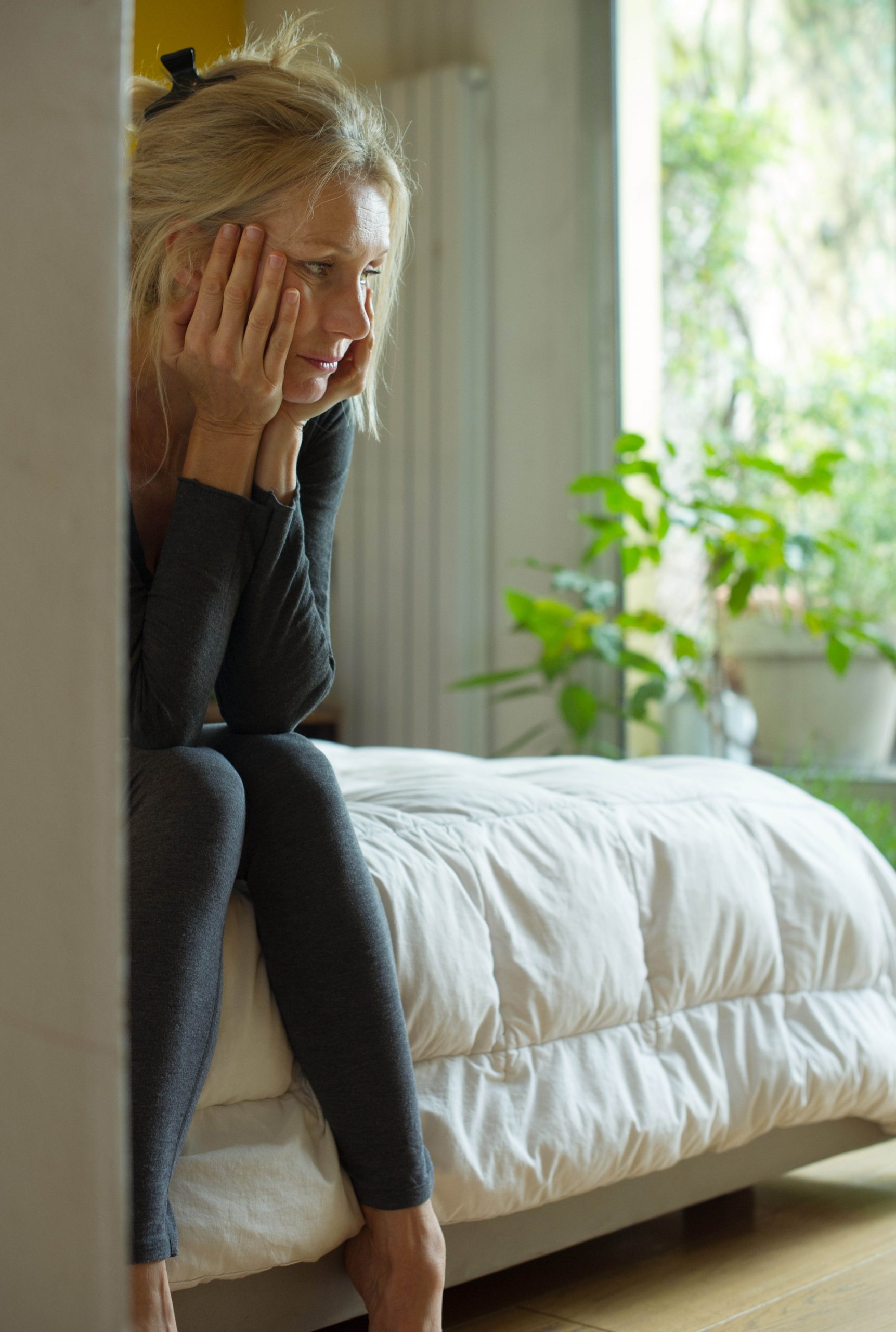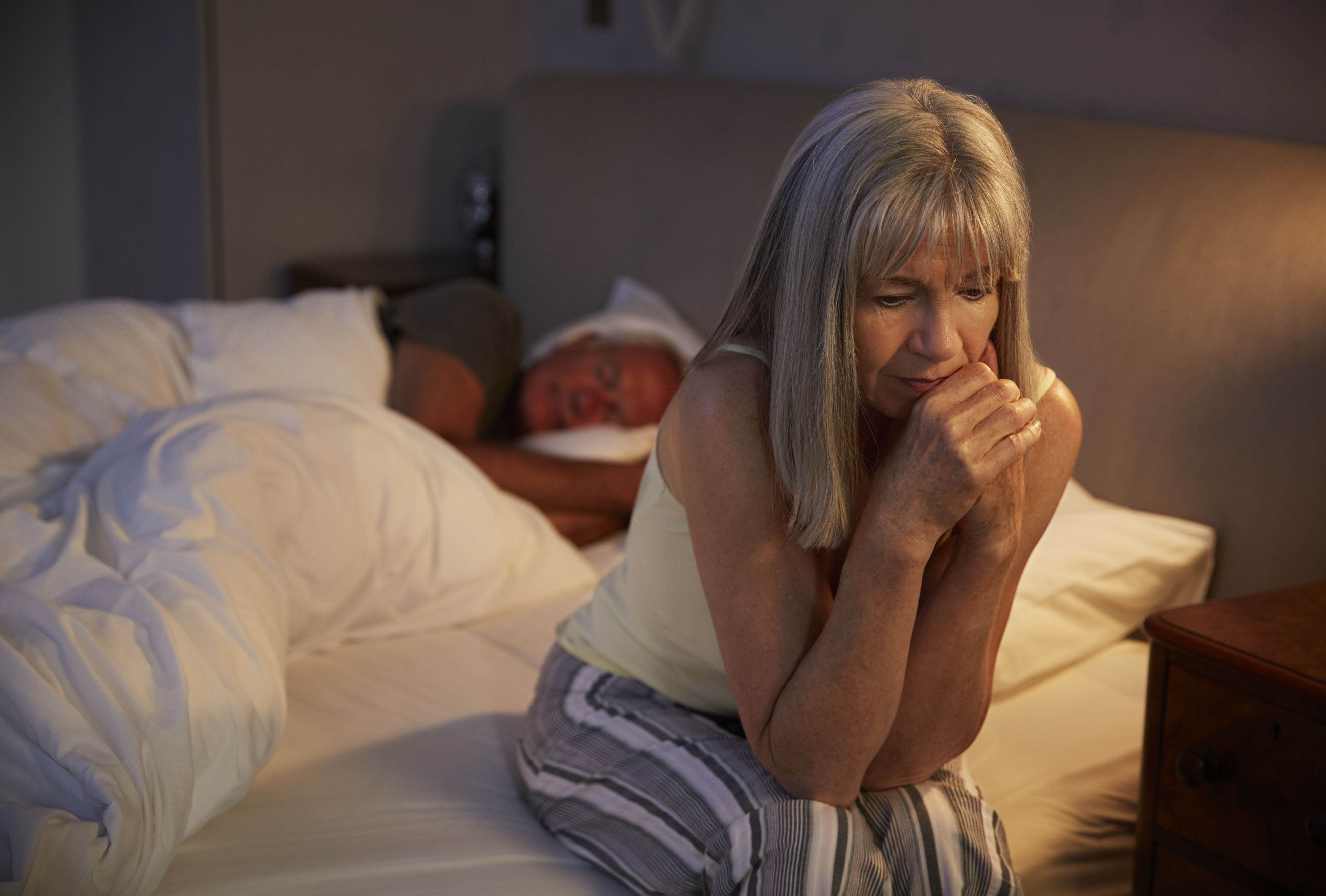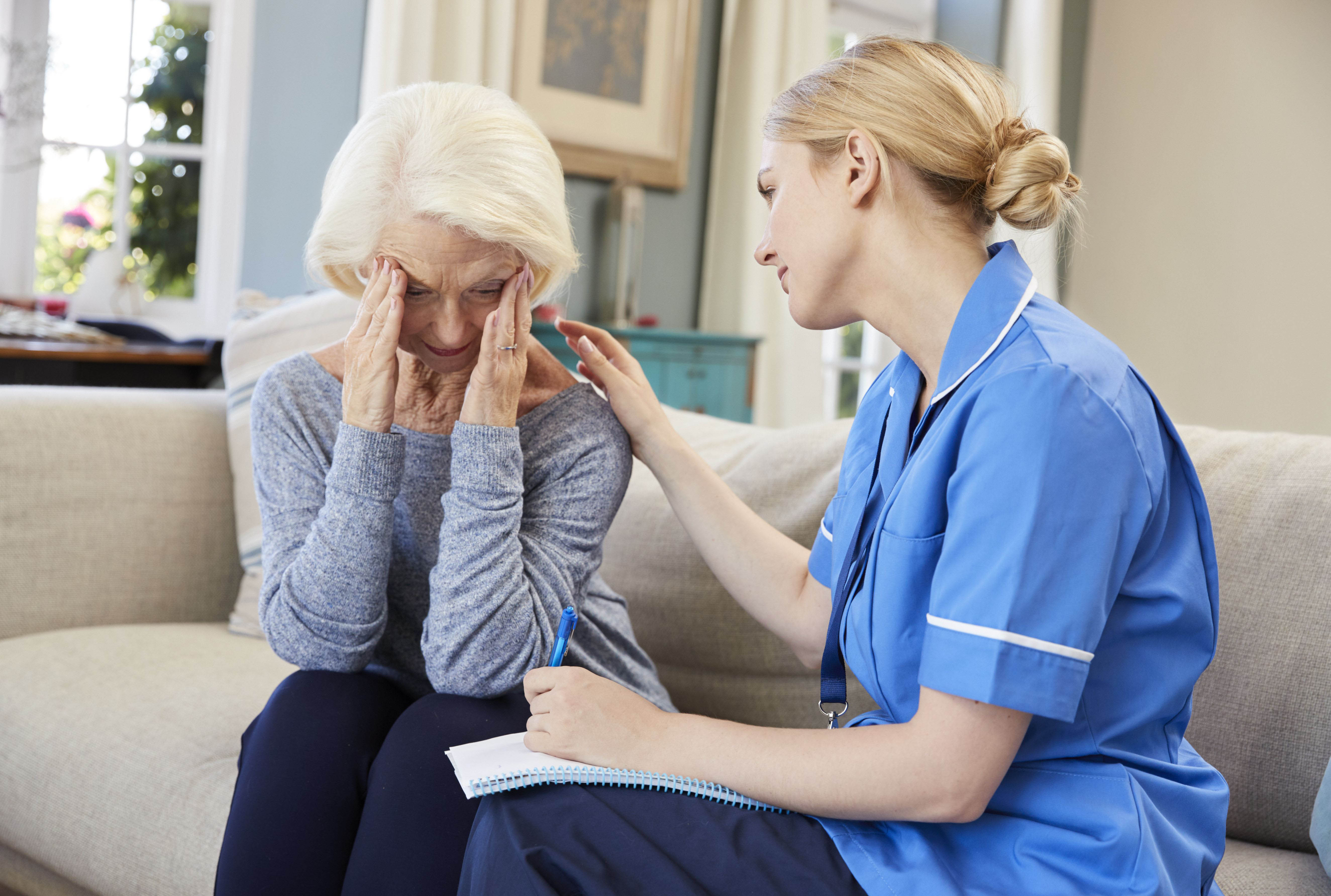What is health anxiety - and how can you combat it?

Health anxiety is a condition we don't generally hear much about - but it's something many people in the UK suffer with.
You may often hear health anxiety referred to as hypochondria, and it's when you spend so much time worrying about your health and wellbeing, that it begins to take over your life. Health anxiety comes under the Obsessive Compulsive Disorder (OCD) spectrum of anxiety disorders - so it's a behaviour that can easily feel uncontrollable.
If you find yourself worrying about every little ache or pain in your body, or growing anxious about every change you see in yourself on an obsessive level - you may be suffering from health anxiety.
In fact, it's something that even celebrities find themselves dealing with.
Recently, Loose Women panellist Stacey Solomon confessed that she often finds herself overly concerned about her health.
On the show, she confessed, "I have more checks than usual... I have health induced anxiety... I have tests done so I know what to look out for and what to be aware of.
"It’s not something I think is normal, it’s just me and my own anxieties... People MOT their car every year, why not your body? I’d rather have no car and be healthy. That’s all that matters."
Sign up to our free daily email for the latest royal and entertainment news, interesting opinion, expert advice on styling and beauty trends, and no-nonsense guides to the health and wellness questions you want answered.
So what are the symptoms of health anxiety?
According to the NHS, constantly worrying about your health is the first symptom.
Checking your body too often for potential signs of illness, such as a lump or rash.
Always seeking reassurance, from family or medical professionals, that you are healthy
Obsessively checking your symptoms on the internet or in the media

Worrying that your doctor or tests may have missed something.
Avoiding anything that discusses serious illness - such as a TV documentary.
Health anxiety can also manifest itself in some real, physical symptoms too, which could in turn make your anxiety worse.
Physical symptoms of health anxiety
Stomach pain
Headache
Racing heartbeat
Feelings of nausea
Health anxiety is real and debilitating - and it's important not to disregard it because you think you're being 'paranoid' or 'crazy'.
So how can you attempt to combat it?
Treatment for health anxiety
The NHS recommends keeping a diary of every time these kind of intrusive thoughts cross your mind - such as when you feel the need to Google a symptom, or book a doctors appointment for something you've already addressed with a medical professional.
By taking note, you can deduce how much a problem your anxiety is becoming - and therefore whether or not you need to seek professional help.
Another interesting tactic is distracting yourself every time you feel like you're beginning to overthink about your health.

For example, whenever you get the urge to check your body for an ailment, distract yourself by meeting up with a friend, or heading to the gym instead.
Some people may however need to seek professional help to deal with their anxiety.
If you feel that your health anxiety has become overwhelming, and is affecting your day-to-day life, book an appointment with your GP, who can offer help and advice.
Many medical professionals advise a course of cognitive behavioural therapy (CBD), which can help to change your thought process over time.
MORE: Coleen Nolan uncovers huge health concern
The Anxiety Association of America has explained the concept.
They said, "The main concept behind CBT is that our thoughts about a situation (such as the fear of AIDS) affect how we feel (afraid and anxious).
We tend to assign meaning to specific situations (lightheadedness means we have brain cancer). It’s not the actual situation causing your anxiety, but the meaning, whether accurate or not. And when you have anxiety, you give your thoughts a lot of meaning, and thus a lot of power.
"CBT aims to help you overcome fears by correcting irrational thoughts and changing problematic behaviours."
Doctors may also prescribe medicine for anxiety, which can help to ease your nervous thoughts.
Anxiety UK also has a range of self-help groups around the country, where you can go to seek support for your issue. Find the full list here.
But most importantly, it's key to remember that there is always help out there if you're suffering from anxiety - and that asking for it is the first step towards feeling better.
Amy Hunt is an experienced digital journalist specialising in homes, interiors and hobbies. She began her career working as the features assistant at woman&home magazine, before moving over to the digital side of the brand where she eventually became the Lifestyle Editor up until January 2022. Amy won the Digital Journalist of the Year award at the AOP Awards in 2019 for her work on womanandhome.com.

